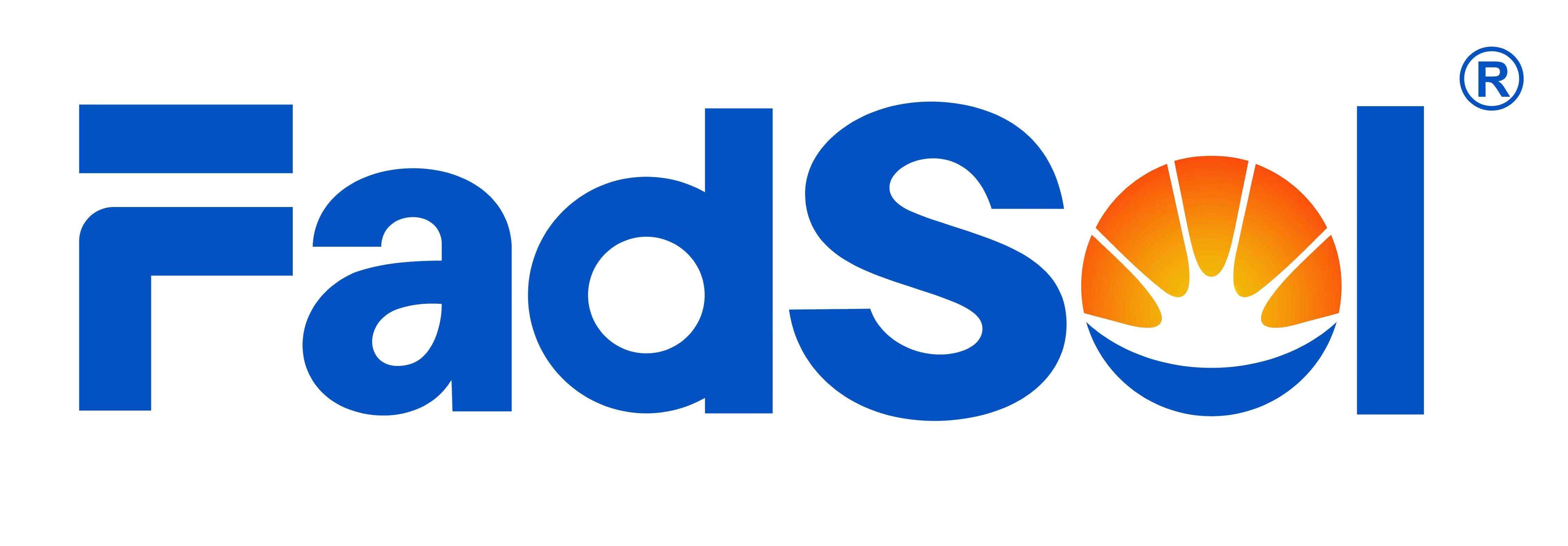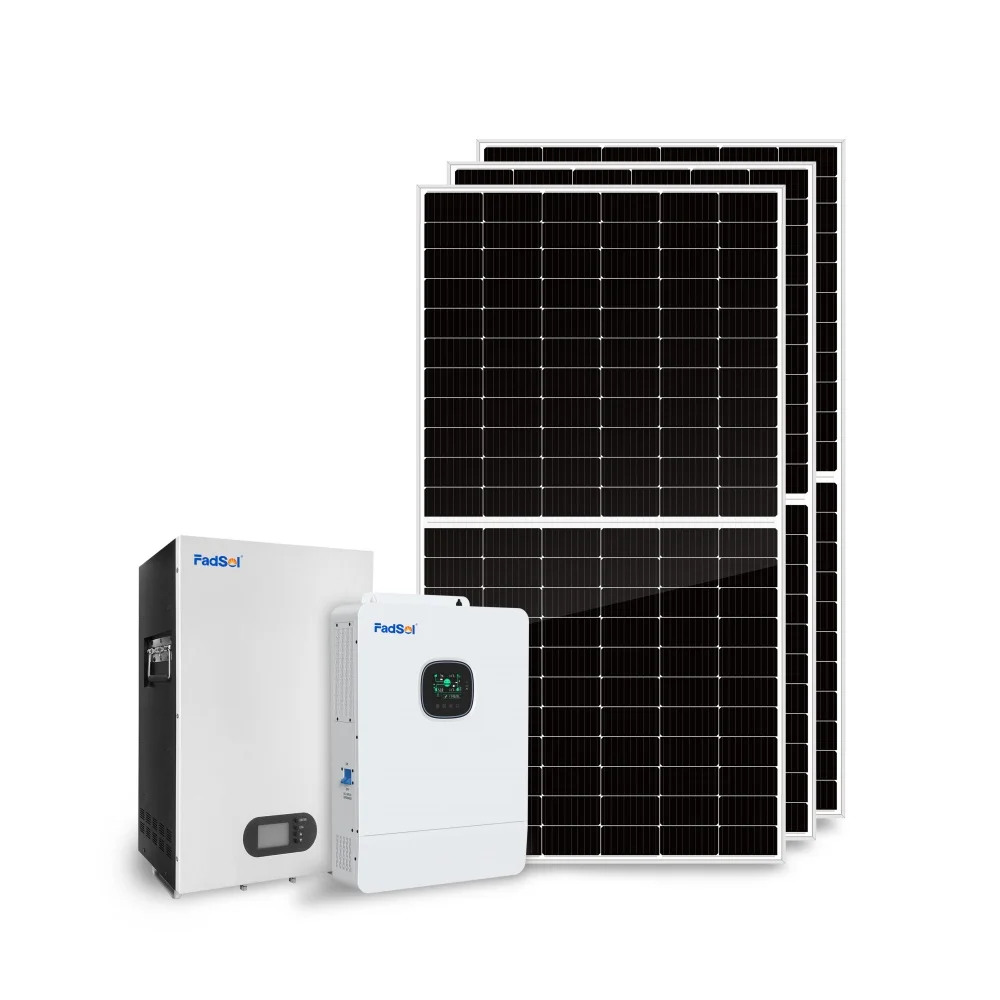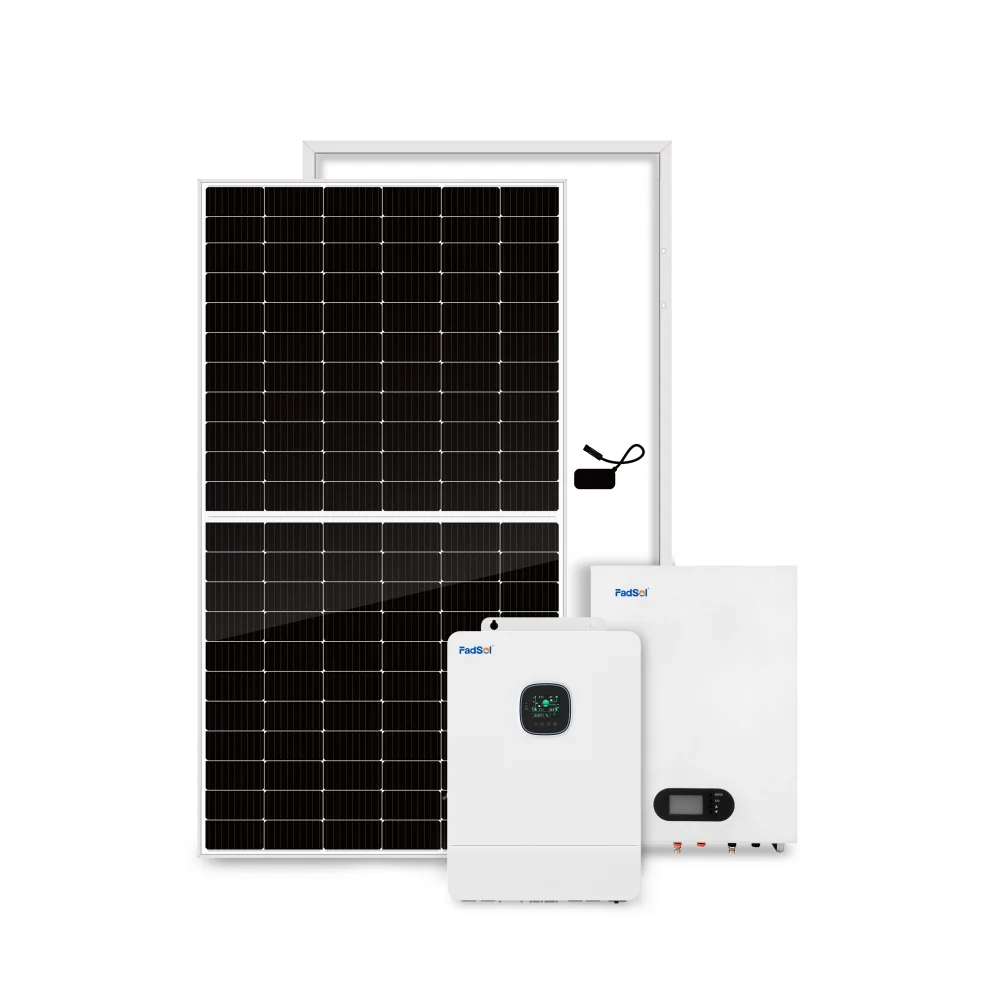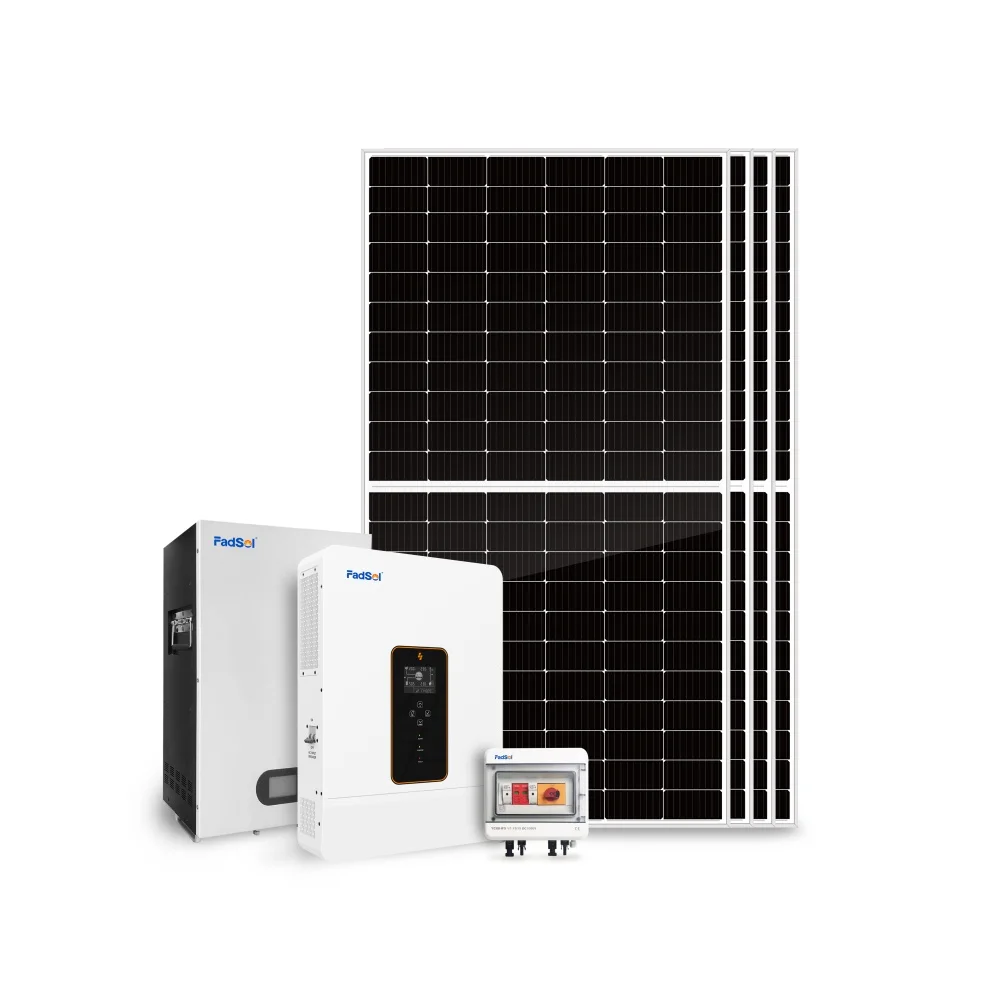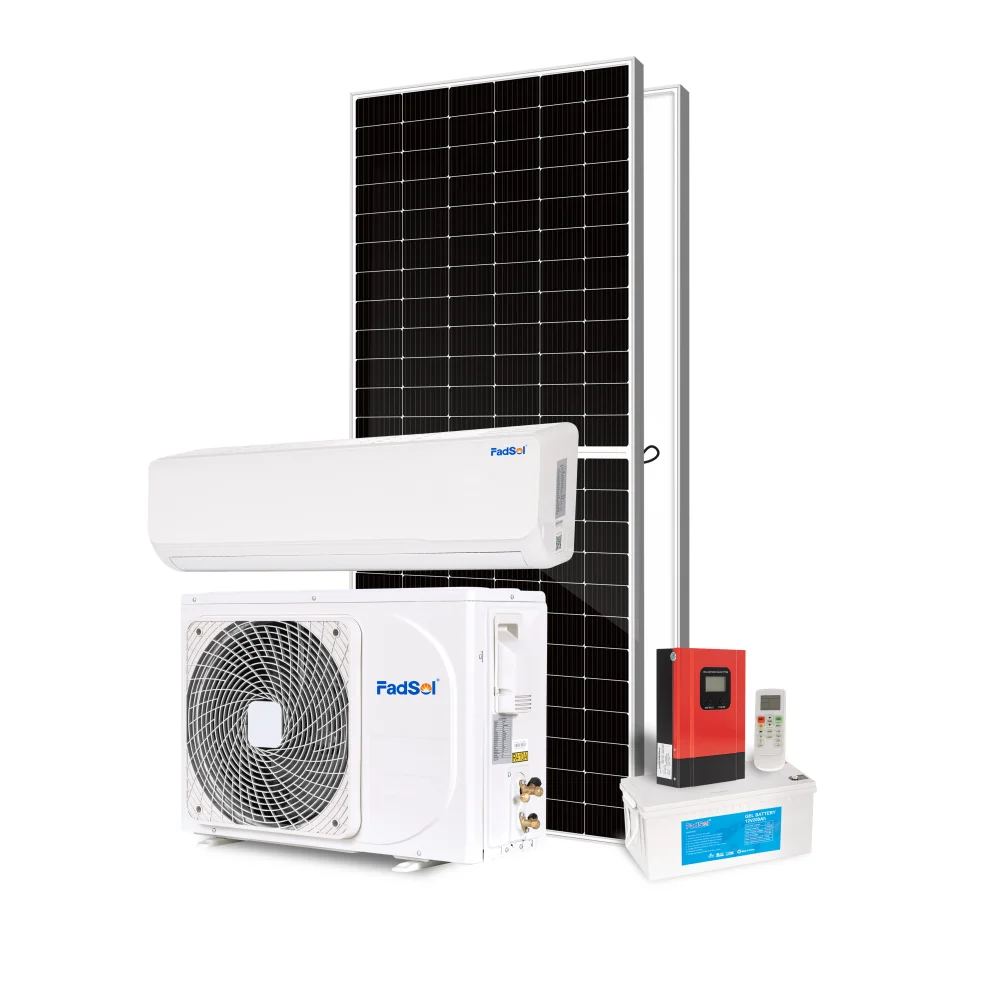Esplorare i Vantaggi dei Condizionatori d'Aria Alimentati a Energia Solare per una Vita Sostenibile
Introduzione ai condizionatori solari
Negli ultimi anni, la tecnologia del condizionamento dell'aria ha subito una significativa trasformazione, con un marcato spostamento verso soluzioni alimentate a energia solare. L'ultimo decennio ha visto notevoli progressi nell'utilizzo dell'energia solare per alimentare i sistemi di raffreddamento, riflettendo la tendenza più ampia verso tecnologie più sostenibili. Con la crescente consapevolezza dei cambiamenti climatici, la domanda di opzioni di raffreddamento rispettose dell'ambiente ed efficienti dal punto di vista energetico è diventata sempre più urgente.
L'importanza di tali soluzioni sostenibili è sottolineata dall'aumento delle temperature globali e dal conseguente aumento del consumo di energia dei condizionatori d'aria convenzionali. Secondo uno studio di energy.gov, l'aria condizionata rappresenta un sostanziale 6% del consumo totale di elettricità negli Stati Uniti, costa circa 29 miliardi di dollari all'anno e contribuisce in modo significativo alle emissioni di carbonio. Ciò evidenzia i potenziali vantaggi dell'adozione di alternative a energia solare, che promettono non solo di mitigare l'impatto ambientale, ma anche di offrire notevoli risparmi sulle bollette energetiche.
Le statistiche indicano che l'uso di impianti solari di condizionamento dell'aria può ridurre notevolmente le spese di energia elettrica, specialmente durante i mesi estivi di punta. Questo cambiamento di paradigma nella tecnologia di raffreddamento è una risposta critica alla crescente consapevolezza della necessità di soluzioni energetiche sostenibili in mezzo alle sfide poste dal cambiamento climatico.
Come funzionano i condizionatori solari
I condizionatori d'aria a energia solare utilizzano il processo fotovoltaico (PV) nei pannelli solari per convertire la luce solare in elettricità. Questo processo inizia con i pannelli solari, che sono costituiti da molteplici celle fotovoltaiche. Ogni cella assorbe la luce solare e, attraverso l'effetto fotovoltaico, la converte in corrente continua (DC). Questa elettricità viene poi utilizzata per alimentare l'unità di raffreddamento del condizionatore d'aria, rendendolo simile ai condizionatori tradizionali, ma con una differenza cruciale. L'alternativa dell'energia solare non solo contribuisce a ridurre le bollette elettriche, ma riduce anche la dipendenza da fonti di energia non rinnovabili, contribuendo positivamente alla sostenibilità ambientale.
La sinergia tra pannelli solari, compressori e sistemi di raffreddamento è vitale per il funzionamento dei condizionatori solari. Una volta che i pannelli solari generano elettricità, alimentano il compressore all'interno del sistema di condizionamento. Il compressore aiuta a raffreddare l'aria comprimendo il gas refrigerante, che rimuove il calore dagli spazi interni. Questo sistema integrato garantisce un raffreddamento efficiente riducendo al minimo lo spreco di energia. Esso utilizza efficacemente l'energia solare durante le ore di punta della luce solare, trasferendo questa energia per far funzionare senza problemi le unità di condizionamento d'aria.
Le batterie e gli inverter svolgono un ruolo importante nell'ottimizzare le prestazioni dei condizionatori d'aria a energia solare. Le batterie, spesso chiamate "batterie bancarie", immagazzinano l'energia solare in eccesso generata durante il giorno. Questa energia accumulata può essere sfruttata durante la notte o nei giorni nuvolosi, garantendo così che il condizionatore possa funzionare ininterrottamente. Nel frattempo, gli inverter sono fondamentali in quanto convertono la corrente continua (CC) prodotta dai pannelli solari in corrente alternata (AC), che è ciò di cui i sistemi convenzionali di condizionamento d'aria hanno bisogno per funzionare. Questa conversione è essenziale perché la maggior parte degli elettrodomestici, compresi i condizionatori d'aria, funzionano con energia CA.
I vantaggi dei condizionatori solari
Passare a condizionatori a energia solare può portare a notevoli risparmi di energia per i proprietari di case. Grazie all'utilizzo dell'energia solare, questi sistemi riducono notevolmente o addirittura eliminano le spese di energia elettrica associate al raffreddamento durante le ore di punta del sole. Gli studi suggeriscono che i proprietari di case possono risparmiare fino al 30% sulle bollette energetiche rispetto ai sistemi di aria condizionata tradizionali, rendendo gli AC solari non solo una scelta più ecologica ma anche economica.
L'implementazione di sistemi di raffreddamento a energia solare svolge un ruolo cruciale nel ridurre la nostra dipendenza dai combustibili fossili, riducendo di conseguenza le emissioni di gas serra. I sistemi tradizionali di condizionamento dell'aria dipendono fortemente da fonti di energia non rinnovabili, contribuendo al degrado ambientale. Al contrario, i sistemi a energia solare utilizzano energia pulita e rinnovabile, in linea con gli obiettivi globali di sostenibilità e riducono l'impronta di carbonio dell'aria condizionata.
I sistemi di climatizzazione solare ricevono spesso la convalida attraverso certificazioni e approvazioni da organizzazioni ambientali di spicco. Entità quali Energy Star forniscono certificazioni che riconoscono l'efficienza energetica e il ridotto impatto ambientale degli apparecchi a energia solare. Tali approvazioni servono come un indicatore affidabile per i consumatori che garantiscono che i loro sistemi di climatizzazione solare contribuiscano positivamente agli sforzi di conservazione ambientale.
Esplorazione dei tipi di condizionatori solari
I condizionatori solari sono disponibili in vari modelli, ognuno per diversi usi e requisiti di spazio. I condizionatori centrali a energia solare, come suggerisce il nome, sono simili ai sistemi di aria centrali tradizionali ma alimentati da pannelli solari. Questi sistemi sono progettati per servire case più grandi o spazi commerciali, distribuendo aria fresca attraverso una rete di condotti. Il loro vantaggio principale è la capacità di raffreddare in modo efficiente vaste aree, rendendoli ideali per ambienti in cui è desiderato un controllo centralizzato. Inoltre, offrono un notevole risparmio energetico e contribuiscono a ridurre l'impronta di carbonio rispetto ai sistemi classici.
D'altra parte, i mini condizionatori solari split offrono versatilità ed efficienza di raffreddamento per spazi più piccoli o edifici senza condotti esistenti, come case più vecchie o progetti di retrofit. Sono costituiti da un compressore esterno e da una o più unità di trattamento dell'aria interna, che offrono flessibilità nell'installazione e nella zonazione per un controllo preciso della temperatura. I sistemi mini-split sono preferiti per la loro efficienza energetica, in quanto riducono al minimo le perdite di raffreddamento associate ai sistemi di condotti. La loro struttura compatta e la loro facile installazione li rendono un'ottima opzione per gli spazi in cui l'installazione di sistemi di condotti completi è poco pratica.
In confronto, i condizionatori centrali a energia solare richiedono generalmente costi di installazione iniziali più elevati a causa della complessità e della scala del sistema, ma eccellono nel raffreddamento efficiente di ampi spazi. I sistemi mini-split, sebbene potenzialmente più convenienti in anticipo, potrebbero non essere compatibili con la capacità di raffreddamento senza soluzione di continuità dei sistemi centrali in spazi molto ampi. Tuttavia, i mini split offrono spesso un'efficienza energetica superiore su scala più piccola e richiedono meno spazio per l'installazione ideali per le aree prive di ampio spazio sul tetto per i pannelli solari. La scelta tra questi sistemi dovrebbe pertanto tener conto sia dei costi iniziali che dei risparmi energetici a lungo termine, oltre alle esigenze specifiche di raffreddamento dell'area.
Considerazioni per l'installazione di un sistema solare
Quando si installa un condizionatore d'aria solare, è fondamentale considerare il clima regionale e i fattori di posizione come le ore di luce solare e la temperatura. Le aree con più ore di luce solare offrono ai pannelli solari maggiori opportunità di catturare energia, migliorando così l'efficienza del sistema. Al contrario, le regioni con un'orario di luce solare inferiore potrebbero aver bisogno di misure di risparmio energetico supplementari per garantire un raffreddamento efficace.
È essenziale disporre di sistemi di climatizzazione solare di corretta dimensione per soddisfare le esigenze di raffreddamento domestico. L'utilizzo di un sistema valutato professionalmente garantisce che l'unità solare è adeguatamente attrezzata per gestire le specifiche esigenze di raffreddamento di uno spazio. L'eccesso o la sottomisura possono portare a inefficienze, con conseguente consumo di energia inutile o raffreddamento inadeguato.
Le normative e gli incentivi locali possono anche avere un impatto significativo sulle decisioni di installazione e sui costi dei condizionatori d'aria solari. Molte regioni offrono incentivi finanziari, sconti o crediti fiscali per incoraggiare l'adozione di soluzioni di energia rinnovabile, che possono alleviare l'onere finanziario associato ai costi iniziali di installazione. È consigliabile fare ricerche su queste politiche locali e consultare un installatore solare per massimizzare i potenziali risparmi.
I migliori prodotti di condizionatori d'aria a energia solare
Per sfruttare al meglio l'aria condizionata a energia solare, è essenziale scegliere sistemi che uniscano efficienza e innovazione. Questa sezione esamina i migliori prodotti di climatizzazione a energia solare che sono leader sul mercato delle soluzioni di raffreddamento sostenibili.
1. sistema di energia solare a 10 kW fuori rete
Questo sistema completo da 10 kW è progettato per uso domestico e industriale, integrando perfettamente una serie di componenti per soddisfare le vostre esigenze di raffreddamento. Esso comprende 20 pezzi di pannelli solari mono di 550W A Grade, una potente batteria LiFePO4 da 200Ah da 48V e un inverter da 10KW con una potenza massima di 20.000VA. Il suo doppio MPPT offre un'efficienza fino al 99,9%, garantendo un utilizzo energetico ottimale.
2. Sistema di energia a pannelli solari fuori rete 20 kW Kit di pannelli solari
Il sistema da 20 kW spinge i confini con la sua capacità espansiva, con 36 pannelli solari da 550 W e due robusti inverter da 10 kW. Questa configurazione migliora significativamente le prestazioni del solare AC, rendendolo adatto a case o strutture più grandi che mirano a massimizzare il loro consumo di energia in modo efficiente.
3. Sistema di energia solare 8KW con batteria solare
Conosciuto per la sua affidabilità, il sistema da 8 kW integra una batteria solare ed è specificamente progettato per una miscelazione senza soluzione di continuità con i sistemi di cambio domestici. Con un inverter a onde sinusoidi e batterie multiple, fornisce una potenza costante ed efficiente, garantendo l'interruzione delle prestazioni di raffreddamento anche durante i periodi di forte domanda.
4. climatizzatore solare da 24000BTU
Ideale per spazi più ampi, questo sistema da 24.000 BTU offre un raffreddamento potente grazie al suo design all'avanguardia. Dotato di doppi compressori a inverter rotativo, offre un'efficienza e un'affidabilità superiori. Gli utenti hanno elogiato il suo funzionamento silenzioso e l'efficacia nel mantenere un clima interno confortevole, sottolineando la sua idoneità per aree di grande ampiezza.
Ciascuno di questi prodotti esemplifica il potenziale della tecnologia solare per trasformare il raffreddamento domestico attraverso innovazioni ecocompatibili ed economicamente efficienti, supportate da forti garanzie e supporto clienti.
Conclusione: il futuro dell'aria condizionata solare
Il futuro del condizionamento solare è molto promettente in quanto investimento a lungo termine in energie rinnovabili, sostenuto da tendenze di mercato favorevoli. Secondo i rapporti del settore, il mercato dei condizionatori solari dovrebbe crescere a un ritmo impressionante a causa della crescente consapevolezza ambientale e dei progressi tecnologici. La Commissione ha pertanto concluso che la Commissione non ha fornito informazioni sufficienti a dimostrare che il mercato dell'Unione è in fase di sviluppo.
Mentre le persone e le imprese si sforzano di pratiche di vita più ecologiche, abbracciare l'aria condizionata a energia solare diventa un'opzione attraente. Scegliendo il solare, non solo si riduce l'impronta di carbonio, ma si contribuisce anche a un pianeta più sostenibile. Con il progresso della tecnologia, possiamo aspettarci ulteriori miglioramenti nell'efficienza e nella redditività dei sistemi di climatizzazione solare. Innovazioni come l'aumento della capacità di accumulo delle batterie e pannelli solari più efficienti sono solo l'inizio, rendendo il raffreddamento a energia solare ancora più accessibile e conveniente nel prossimo futuro.
 EN
EN
 AR
AR FR
FR DE
DE IT
IT PL
PL PT
PT RU
RU ES
ES SW
SW HA
HA